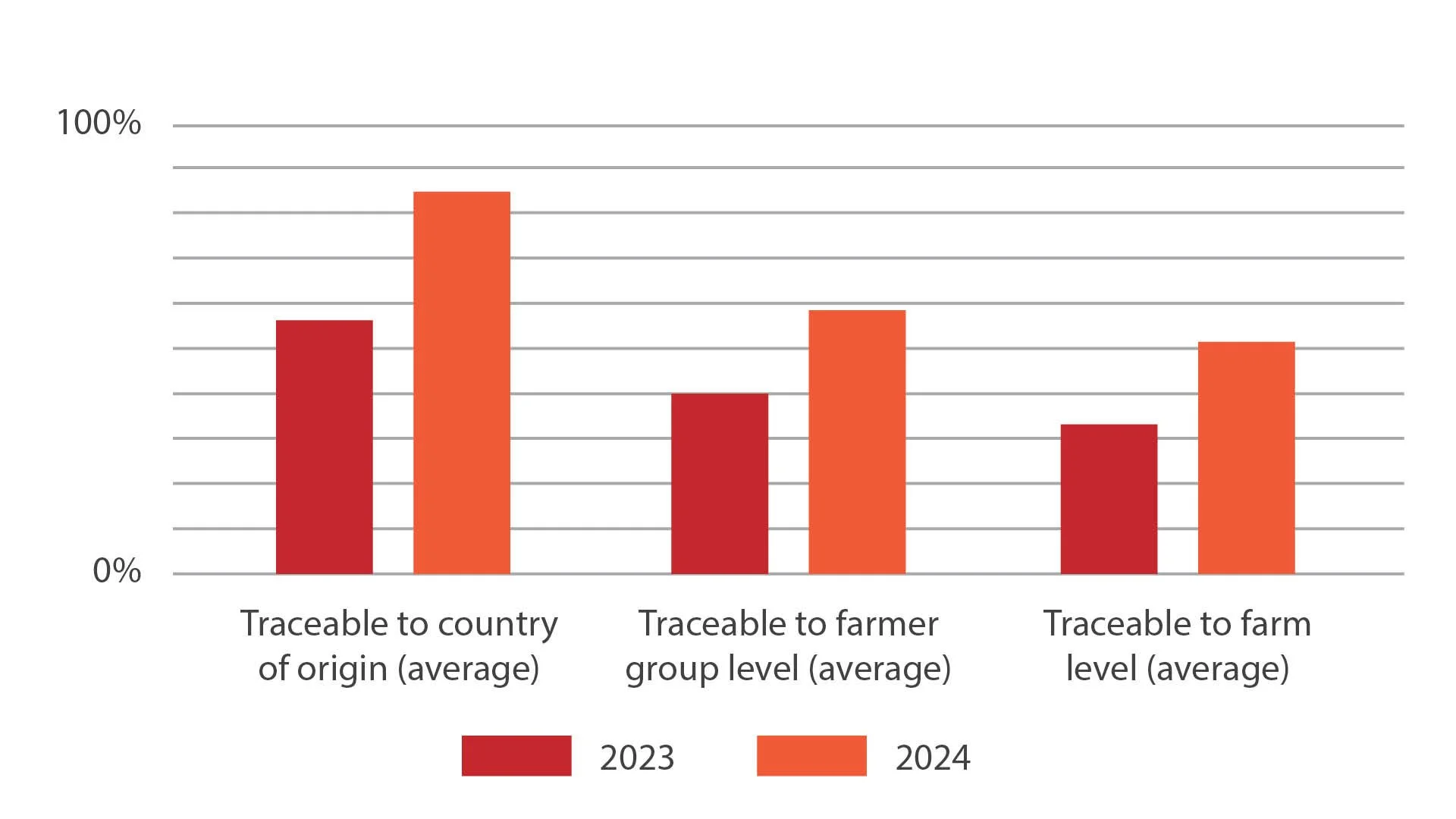
Australians’ awareness of modern slavery is growing and so are their expectations of government

In 2018, we boasted that we were leading the world in our actions on modern slavery, and we were. We can no longer make that claim. It is one thing to have good legislation; it is another thing to actually put in place the things to make that legislation actionable and enforceable.

Australian’s awareness of modern slavery is growing and so are their expectations of government

A package of reforms are required for Australian legislation, relating to modern slavery in supply chains, to be fit for purpose
Ban services and goods made with forced and child labour from entering Australia
We risk becoming a dumping ground for the goods made with forced and child labour which are banned from entering the USA, EU and other regionsEstablish an Anti-Slavery Commissioner
We urge the Government to strengthen the powers, independence and resourcing of the Anti-Slavery CommissionerImplement the recommendations from the MSA Review
We urge implementation of all the recommendations of the MSA Review, particularly the strengthening of reporting, compliance (including penalties) and a due diligence (duty to prevent) approach

The Government has a role in encouraging the ‘race to the top’ by business in addressing modern slavery.
Traceability of products and components is essential to addressing a range of human rights and environmental abuses. Be Slavery Free coordinates the Chocolate Scorecard, assessing the progress of over 95% of the chocolate industry to address such issues. Since the EU has introduced its Deforestation Regulation, (requiring cocoa to be traced to ensure lack of sourcing from more recently deforested areas) companies have significantly ramped up the tracing of the provenance of their cocoa.

Reforms to End Modern Slavery

1. Ban on the Import of Goods Made with Forced and Child Labour
Major markets are banning the importation of such goods into their jurisdictions. For Australian business who are not using forced or child labour to remain competitive in Australia, such a ban is essential for creating the level playing field for business the Modern Slavery Act (Cth 2018) sought to achieve.
United States of America
The US has mechanisms which use a ‘rebuttable presumption’ approach to enforce US laws to stop the entry of goods produced with forced labour and indentured child labour. The US Uyghur Forced Labor Prevention Act (2021) specifically imposes importation limits on goods produced using forced labour in China, especially the Xinjiang Uyghur Autonomous Region.
European Union
On 5 March 2024, the EU reached an agreement on an EU Forced Labour Import Ban. Under this legislation, products made with forced labour will be banned from the EU market. The burden of proof sits with authorities.
United Kingdom
A legal petition has been filed under the UK Global Human Rights Sanctions Law (GHR) to implement sanctions against seven Chinese seafood processing companies allegedly using forced labour. (4 March 2024)
Recommendation
Amend the Australian Customs Act 1901 to prohibit the import of services and goods made wholly or in part with forced labour (including child labour).
Empower the Australian Border Force to be able to issue 'rebuttable presumptions' for specific goods, companies and/or regions identified by the government has having a high risk of being associated with forced labour.

2. Anti-Slavery Commissioner
We welcome the recent introduction of the Modern Slavery Amendment (Anti-Slavery Commissioner) Bill 2023 (Cth) (ASC Bill) to lead the Government’s work to abolish slavery in Australia and abroad. We urge the Government to take into account the strong call made in the submissions and evidence provided to the Inquiry to strengthen the powers, resourcing and independence of the Commissioner. We believe that it is essential to strengthen the current proposed legislation to enable the Commissioner to effectively engage with business, civil society, government agencies and victim / survivors. We note that the Government may revisit this legislation following its response the Review of the MSA.
Recommendation
The current ASC Bill be amended to provide the Anti-Slavery Commissioner with
genuine independence (including joint parliamentary engagement)
powers to identify, monitor and enforce compliance
the resources to effectively undertake the proposed functions
Ensure the Commissioner is able to undertake their role ‘without fear or favour’ .

3. Review of the Modern Slavery Act 2018 (Cth) (MSA Review)
It is now eight (8) months since the MSA Review was released. We reiterate our strong support for the recommendations contained in the Review. The ‘race to the top’ in modern slavery prevention will require these reforms
Recommendation
The Government expedite its response the MSA Review and move to implement the recommendations in order to improve Australia’s response to modern slavery

Read our joint submissions
Modern Slavery Act Review
November 2022
25 civil society organisations have called for a focus on effectiveness in ending modern slavery over efficiency of implementing the Modern Slavery Act, as part of Be Slavery Free’s submission to the Modern Slavery Act Review.
Anti-Slavery Commissioner
January 2024
34 civil society organisations and academics forged a collective front to submit comprehensive recommendations on the Modern Slavery Amendment (Australian Anti-Slavery Commissioner) Bill 2023 (Cth).




